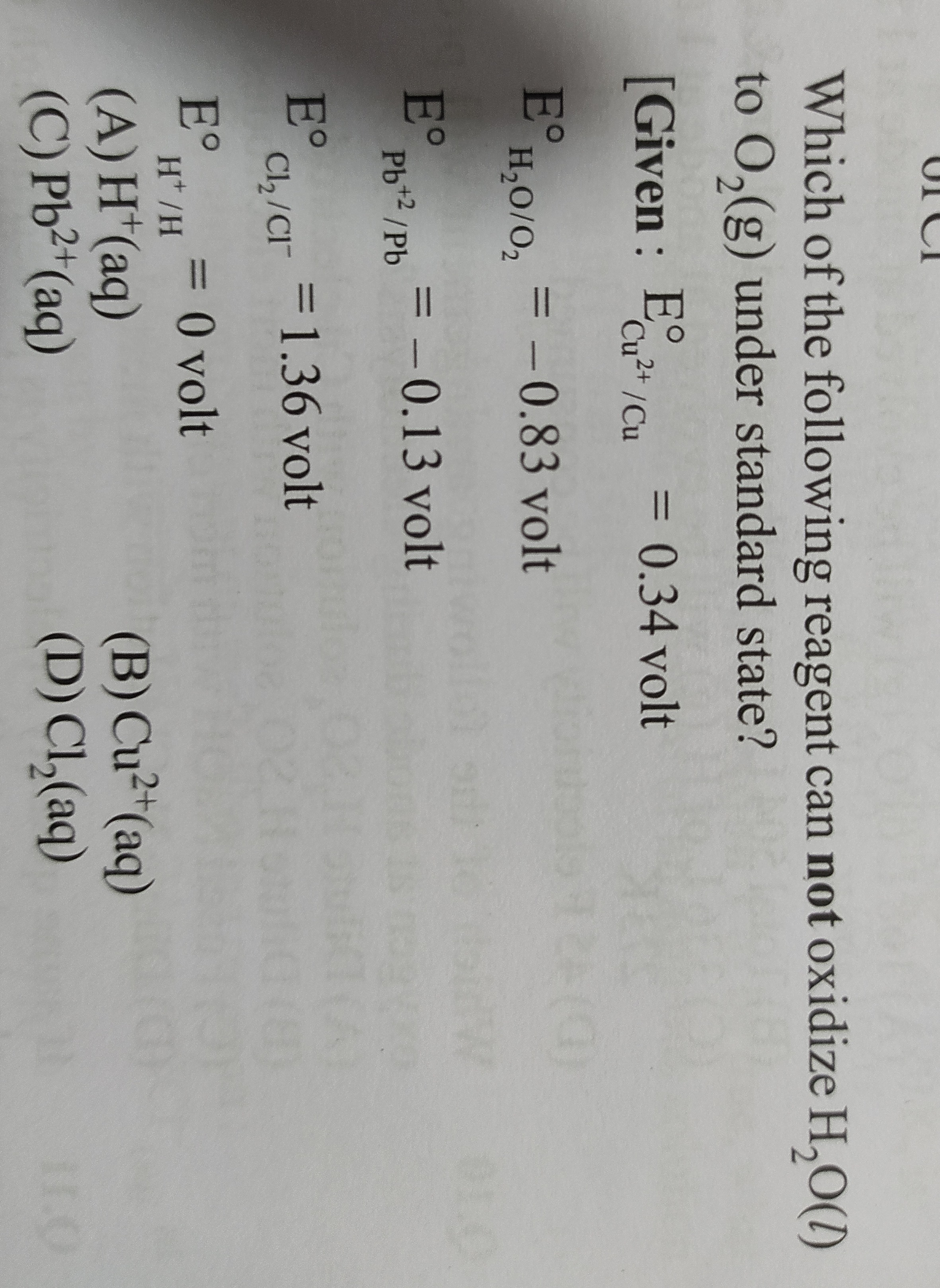Question
Question: Which of the following reagent can not oxidize $H_2O(l)$ to $O_2(g)$ under standard state? [Given: ...
Which of the following reagent can not oxidize H2O(l) to O2(g) under standard state?
[Given: ECu2+/Cu∘ = 0.34 volt
EH2O/O2∘ = -0.83 volt
EPb+2/Pb∘ = -0.13 volt
ECl2/Cl−∘ = 1.36 volt
EH+/H∘ = 0 volt

H+(aq)
Cu2+(aq)
Pb2+(aq)
Cl2(aq)
A, B, C (Multiple correct options based on calculation)
Solution
For a reagent to oxidize H2O(l) to O2(g), its standard reduction potential (Ered∘) must be greater than the standard reduction potential of the O2/H2O couple. The oxidation potential of H2O to O2 is given as EH2O/O2∘ = -0.83 V. Therefore, the standard reduction potential for O2(g)+4H+(aq)+4e−→2H2O(l) is EO2/H2O∘=+0.83 V.
A reagent cannot oxidize H2O if its Ered∘<+0.83 V.
-
For H+(aq), EH+/H2∘ = 0.00 V. Since 0.00<0.83, H+ cannot oxidize H2O.
-
For Cu2+(aq), ECu2+/Cu∘ = 0.34 V. Since 0.34<0.83, Cu2+ cannot oxidize H2O.
-
For Pb2+(aq), EPb2+/Pb∘ = -0.13 V. Since −0.13<0.83, Pb2+ cannot oxidize H2O.
-
For Cl2(aq), ECl2/Cl−∘ = 1.36 V. Since 1.36>0.83, Cl2 can oxidize H2O.
Thus, H+(aq), Cu2+(aq), and Pb2+(aq) cannot oxidize H2O(l) to O2(g).
